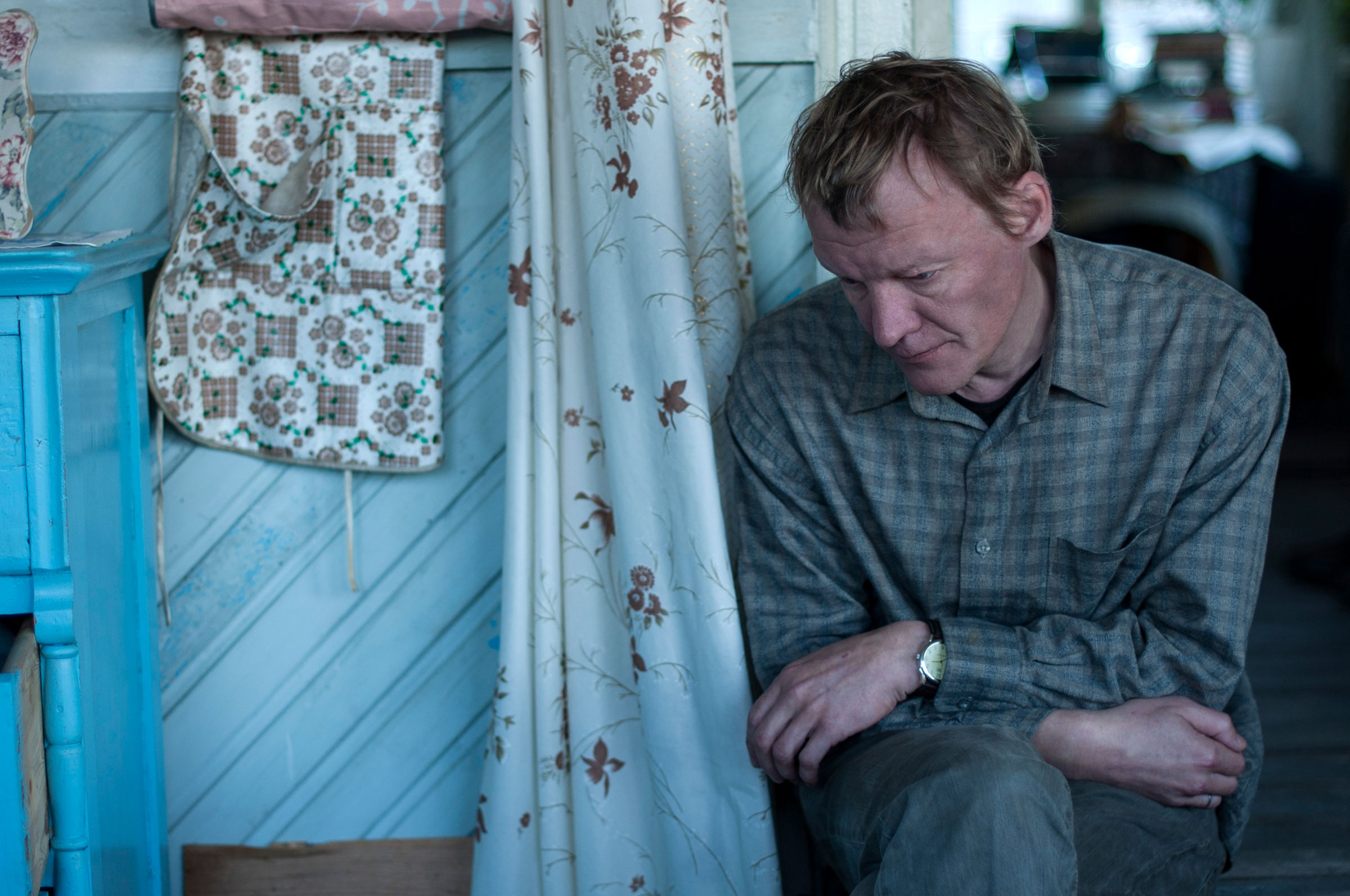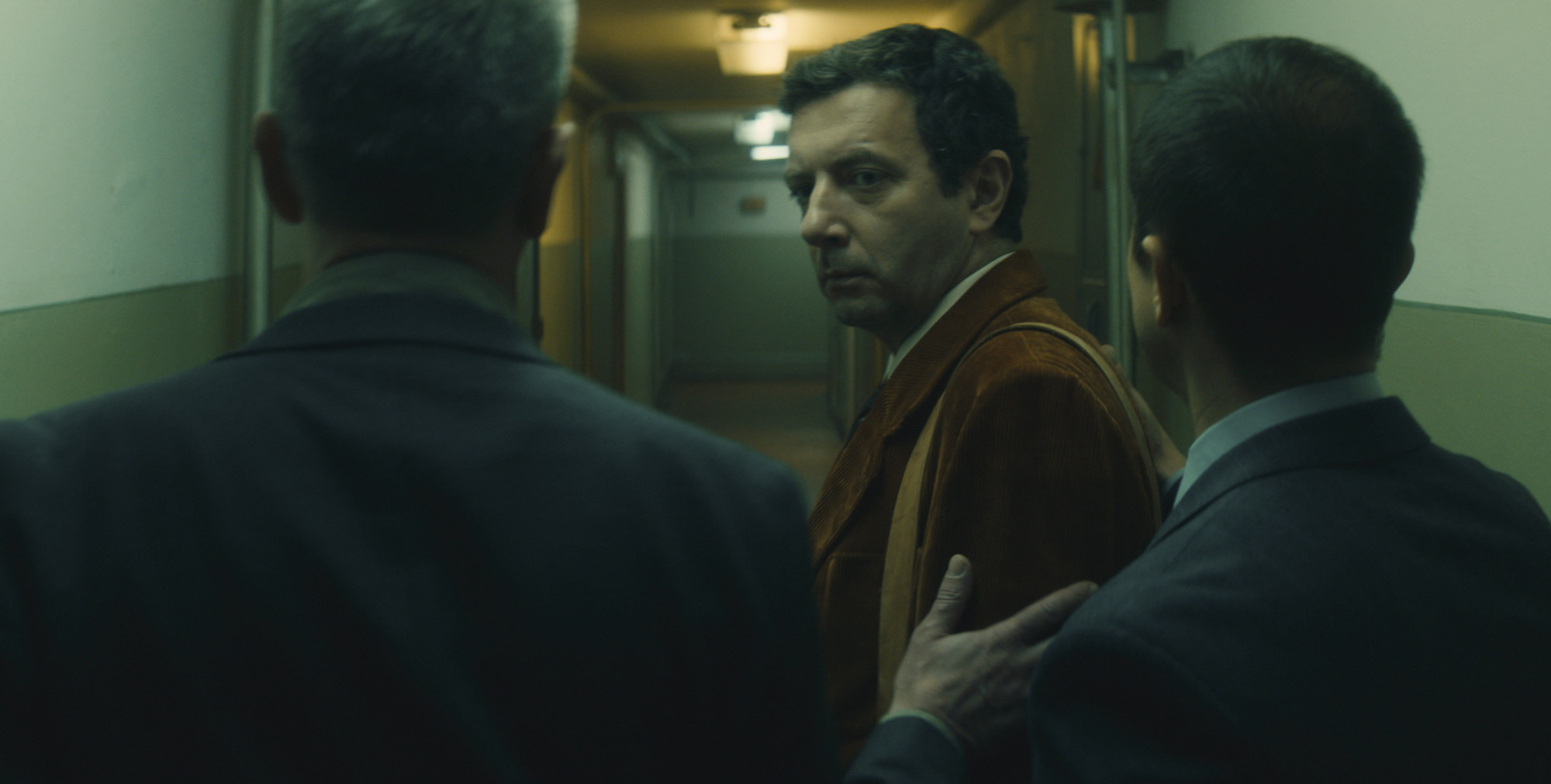
The main character of Mephisto, the Oscar-winning film based on a 1936 novel by Klaus Mann, is a brilliant theater actor who thinks he can outsmart the Nazis by collaborating with them. By the film’s end, he is left hysterically screaming, “Ich bin doch nur ein Schauspieler!”—“but I am only an actor!”—as Hitler’s repression machine comes for him, too.
Mann’s antihero is a thinly veiled version of Gustaf Gründgens, a real-life German star who famously played Hamlet and Faust for Nazi audiences, and died decades later still dogged by the question of his complicity. As Vladimir Putin’s Russia tumbles down the neofascist path with its invasion of Ukraine and intensifying internal search for “national traitors,” Russian actors—many of whom hold progressive views—are facing the same conundrum: is it collaborationism to simply continue working?
Members of other creative professions—from musicians and novelists to graphic designers and dancers—are fleeing Russia in droves, forming ad hoc enclaves in places like Istanbul, Yerevan, and Tbilisi; an estimated 250,000 Russians have left since the start of the war. Rap star Face announced he “no longer exist[s] as a Russian citizen and artist,” and prima ballerina Olga Smirnova quit the Bolshoi for the Dutch National Ballet. Actors, however, find themselves tied down both by an immovable industry and by the only language in which most can perform. Their only choice is between continuing on as if nothing had happened or looking for a new job.
“I don’t know if I can do anything other than act,” says one young, formerly rising film star who, like several others interviewed for this story, asked me not to use his own name for fear of government retribution, “but it’s time to start figuring it out.”
The Russian cinema industry, like most national cinemas outside of the U.S., is not designed for profit. Only about 7% of the more than 1,000 films released between 1992 and 2015, for instance, have made it into the black. Privately financed content exists, but a vast majority of films derive their budgets from two bodies—the Ministry of Culture and a quasi-governmental Cinema Fund.
For most of their existence, these bodies were no more or less politicized than their West European counterparts, such as Council of Europe’s Eurimages, to which Russia used to belong as well. Over time, however, Putinist ideology began to seep into their behavior—especially with the arrival of crank World War II historian Vladimir Medinsky, who served as the Minister of Culture from 2012 to 2020. (In a pointedly trollish choice by Putin, Medinsky is currently heading up Russia’s peace talks with Ukraine.)
Read More: ‘There’s an Atmosphere of Fear.’ With Flights Banned, Russians Are Fleeing By Train for Europe
Yet even under Medinsky, there existed a tacit understanding that, in order to compete for cultural “soft power” at international film festivals and markets, Russia would have to keep supporting films critical of the regime, such as Aleksey German’s Netflix title Dovlatov or Andrey Zvyagintsev’s Oscar-nominated Leviathan. The story of my own 2019 feature directing debut, The Humorist—a film heavily indebted to Mephisto—is a good example. The Ministry of Culture was a minority investor in it, alongside Eurimages and Czech and Latvian film funds, and has voiced no opinion on it whatsoever despite its clear anti-totalitarian stance and my own U.S. citizenship.
Soft power, however, is no longer a concern. With Russia morphing from hybrid authoritarianism that tolerated some dissent into a full dictatorship, festivals such as Cannes and Berlin are closed off to it, and so are content markets such as MIPTV. Netflix and other streaming players have suspended their operations inside the country and stopped buying its content. On March 16, Council of Europe, which funds Eurimages, voted to expel Russia. In essence, the state has no impetus left, internal or external, to finance any art ideologically out of line with its own warmongering.
What can an actor do in this situation? “Imagine yourself in my place,” says one actress with a longtime oppositional stance. “You’ve done everything you could years before the war began. You’ve taped your messages. You’ve lodged your objections. You got all kinds of abuse in response, from police visits to your home to death threats in your DMs. You’ve done all of this, and you still can’t change anything.”
The history of Russian actors’ dissent is, for the most part, a study in forced compromise. In 2021, dozens of film and TV stars who had publicly voiced support for the Kremlin’s chief critic Alexei Navalny, which had been tacitly allowed before, found themselves blacklisted from all future projects. Some curbed all political activity and were subsequently “forgiven.” Others moved to places like Georgia.

The Humorist, set in 1984, happened to depict this very choice: its main character is a fictional Soviet comedian who has changed his last name from the Jewish-sounding Aronson to a neutral Arkadiev and spends his days entertaining the KGB elite; his friend Simon Greenberg, who refuses to do either, languishes unpublished and banned from TV—but one of the film’s points was that the Greenberg way is feasible, too, for those willing to forgo the comforts of mainstream fame. I meant it as a comment on the creeping Putin-era censorship, but the stakes have grown much higher since then. Where dissent once meant career risk, it now means prison or exile.
In the first days after the invasion, many actors posted anti-war messages, however anodyne, on Instagram and other social media. On March 4, though, even the simplest pacifist sentiment was outlawed: anything that could be construed as “spreading false information about the Russian military”—including calling the war a war—was now punishable by up to 15 years in prison.
Some actors took the antiwar posts down. Those who managed to leave in time, like actress Irina Gorbacheva, began using their social-media platforms to amplify and repost Ukrainian refugees’ calls for humanitarian aid. Others half-heartedly went back to the usual light fare—pets, premieres, fashion shows, hotel-room selfies. (This carries its own risks—“I get hundreds of DMs a day from Ukrainians wishing me death for not speaking up,” says one popular actress/influencer who stuck to the business-as-usual tactic. She is currently in the process of moving to Berlin.)
Read More: How Telegram Became the Digital Battlefield in the Russia-Ukraine War
On March 15, a dedicated list of “national traitors” sprung up on the site of a Russian NGO, with photos of many film-industry professionals (including the star of my most recent film) marked enemy or traitor. If some hope remained that this was a work of an overeager flunkie, it was dashed the very next day when Putin went on TV to decry the “fifth column” of “scum and traitors” in the Russians’ own midst. Most analysts are regarding this speech as an indirect green light to mass repressions.
Four days later, Chulpan Khamatova, one of Russia’s biggest film stars and philanthropists, revealed in an interview that she had left the country. “I’m afraid to go back,” she said. “To come back to Russia would mean to ignore what I see with my own eyes, ignore what I hear from my Ukrainian friends, lie to myself, lie to the entire world, and ask [the Russian government] to forgive me for not supporting the war from the start. That, or to go to prison.”
Khamatova is a rare case of a Russian star with a Western side career, including a role in the much-loved German comedy Good Bye Lenin! Far more often, actors’ skills, unlike musicians’ or dancers’, are not easily exportable, and their work cannot be performed remotely. Even in better times, crossovers were rare. Exceptions like Yuri Kolokolnikov, a working character actor in Hollywood, are treated as improbable international successes back home. Few of the young stars, even the worldliest and most ambitious, take it upon themselves to learn English well enough for a shot at becoming the next Alicia Vikander or Gal Gadot. And, of course, once the war began, the optics of working with a Russian citizen made finding work nearly impossible in any other major market, except, perhaps, China.
The inability to cross over forces artists to the real-life Faustian decision: what to do once the new censorship laws and the cratering economy sweep away almost everything except state-sponsored propaganda? “I’ve asked around,” says the young, formerly rising film star. “All of my friends are saying they’re not going to do it. I haven’t found a single soul who’d say, ‘Oh, I don’t care, money is money.’” Many older actors, however, including stars Sergey Bezrukov and Vladimir Mashkov (Mission: Impossible – Ghost Protocol), are vocal supporters of the war and will doubtlessly feel quite comfortable in the new circumstances.
Read More: The Untold Story of the Ukraine Crisis
For the moment, almost all Russian films and TV series currently slated for production are still moving ahead, even as international sanctions are destroying the value of the ruble and the country’s economy. An insider calls this fare “the last of the VOD momentum,” meaning the high-gloss, mostly apolitical entertainment commissioned before the war by a half-dozen video-on-demand platforms. Of the few projects that stalled, some did because they were made for Western services such as Netflix, and others because Ukrainian stars quit them. Two new fairy tales, Flying Ship and the latest installment of the popular, Disney-branded Last Warrior franchise, had cast Ukrainian actresses who left the country as soon as the war began.
The Russian and Ukrainian film industries used to be linked to such an extent that most of the Ukrainian President Volodymyr Zelensky’s pre-politics career was spent starring in Russian comedies. The actress with the longtime oppositional stance recalled working in Kyiv in the years after Putin’s land grab, which she criticized, and noting a smaller number of Russians on set than in the past. Still, she expected a somewhat tense welcome from Ukrainian audiences, and was pleasantly shocked at the warmth of the reception.
“I made tons of friends there,” she says. “Most of them are texting me now from bomb shelters.”
More Must-Reads from TIME
- Cybersecurity Experts Are Sounding the Alarm on DOGE
- Meet the 2025 Women of the Year
- The Harsh Truth About Disability Inclusion
- Why Do More Young Adults Have Cancer?
- Colman Domingo Leads With Radical Love
- How to Get Better at Doing Things Alone
- Michelle Zauner Stares Down the Darkness
Contact us at letters@time.com